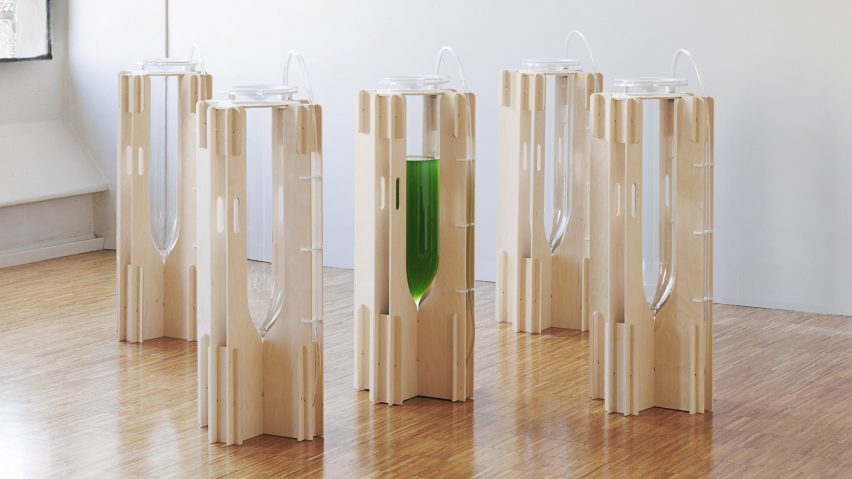
EcoLogicStudio creates air purifier powered by algae
London design practice EcoLogicStudio has created a collection of everyday objects using algae, including a desktop air purifier that outputs material used to create furniture and accessories, to be shown at Milan Design Week.
The PhotoSynthetica collection is anchored by the AIReactor, a desktop "photobioreactor" that uses algae to purify the air. The biowaste from the process is then used to create biopolymers integrated into 3D-printed objects, such as the stool and ring that complete the collection.
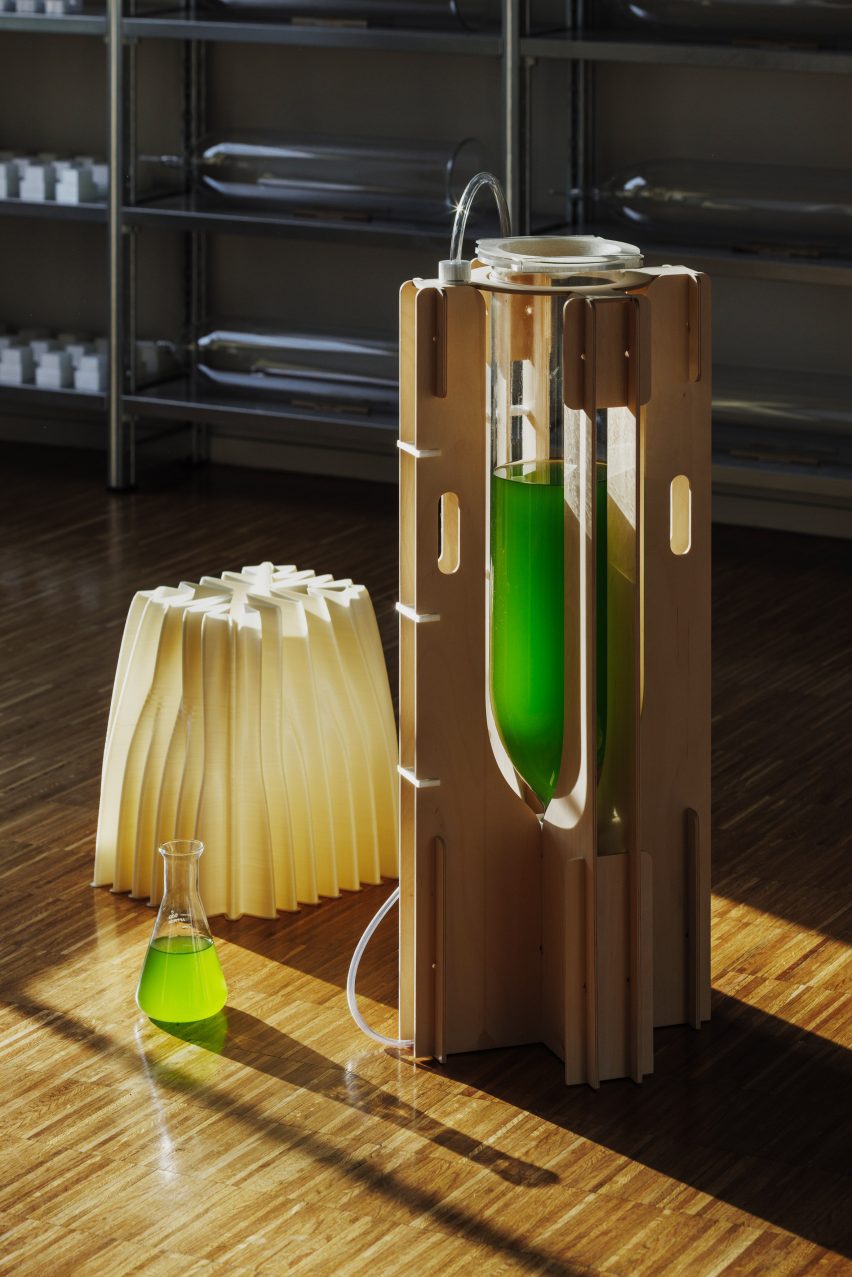
The collection grows upon the research project EcoLogicStudio's PhotoSynthetica launched in 2018, which includes a massive tree sculpture created using biomass, or waste material, harvested from microalgae.
"There are several motives behind the creation of this collection," the studio told Dezeen."First and foremost to support the scaling up of the PhotoSynthetica technology, thus allowing its deployment in urban areas with high levels of air pollution, offering immediate benefits to densely populated areas where air quality is a significant concern."
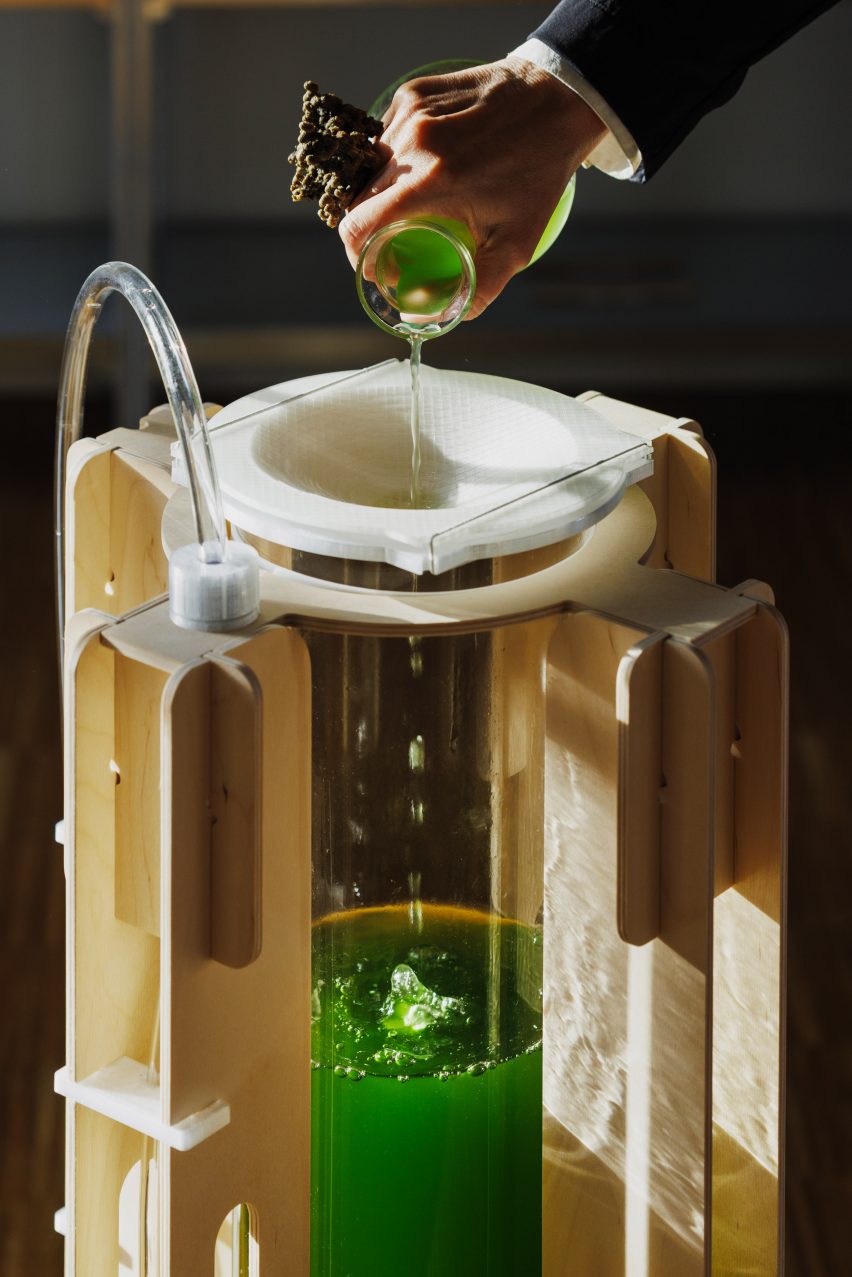
"By harnessing the natural air-purifying properties of algae, the technology effectively removes pollutants such as carbon dioxide and particulate matter from the atmosphere, thereby reducing air pollution levels."
The AIRreactor, standing at 3 feet (1 metre) tall, was created using a birch plywood frame that can be recycled or composted, according to the team. It supports a glass "photobioreactor" at its centre, which contains 10 litres of a bright green liquid containing micro-algae cultures.
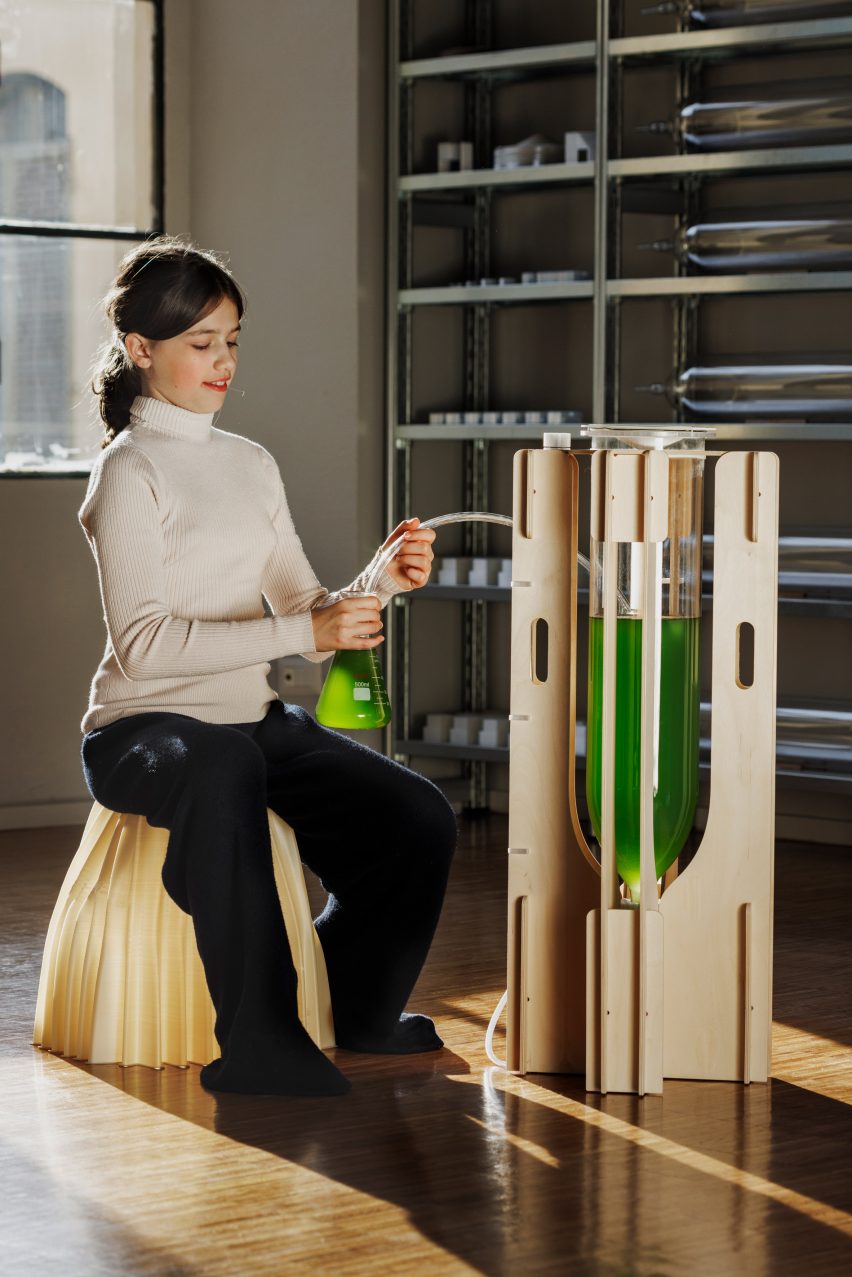
Air is introduced to the liquid by a "reactor" at the bottom, which constantly stirs the mixture to emulate natural marine waves and currents.
The algae then filter carbon dioxide and pollutants from the air and convert it into biomass and oxygen through photosynthesis, the waste of which was collected to create the accompanying stool and ring.
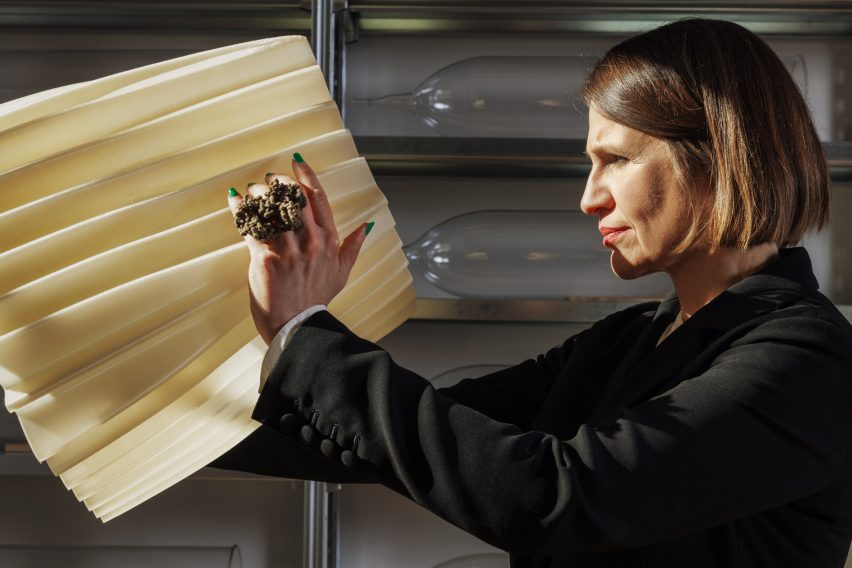
"In addition to capturing pollutants, the microalgae cultivated in AIReactor can be harvested and utilized to produce biopolymers for 3D printing products," said the studio.
"After harvesting, the algae biomass can be dried and then undergo further processing to produce biopolymers, which are natural polymers derived from renewable plant-based sources."
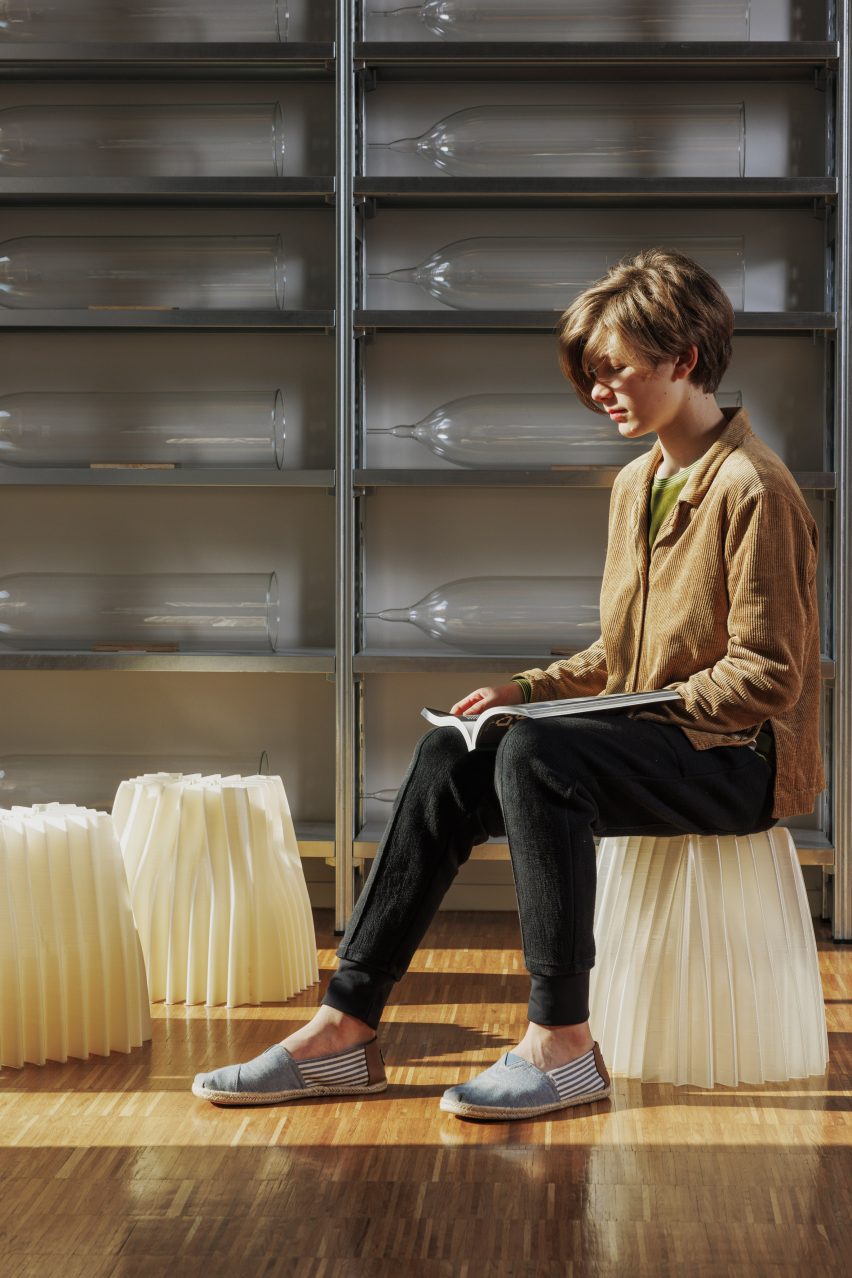
The stool, which features a ribbed, amorphous body, was created in collaboration with the Synthetic Landscape Lab at Innsbruck University, and is composed of up to 30 per cent of the biopolymer created from the AIRreactor, according to the studio.
A PLA/PHB compostable polymer was used for the remaining material composition.
Its material makeup allows the objects to be flexible and "creates the possibility for near infinite customisation of the product".
The Bio-digital ring is similarly made up of 30 per cent of algal biomass, with a base of polylactic acid. It is composed of layers of 3D-printed polymers to create a topographical, bumpy mass.
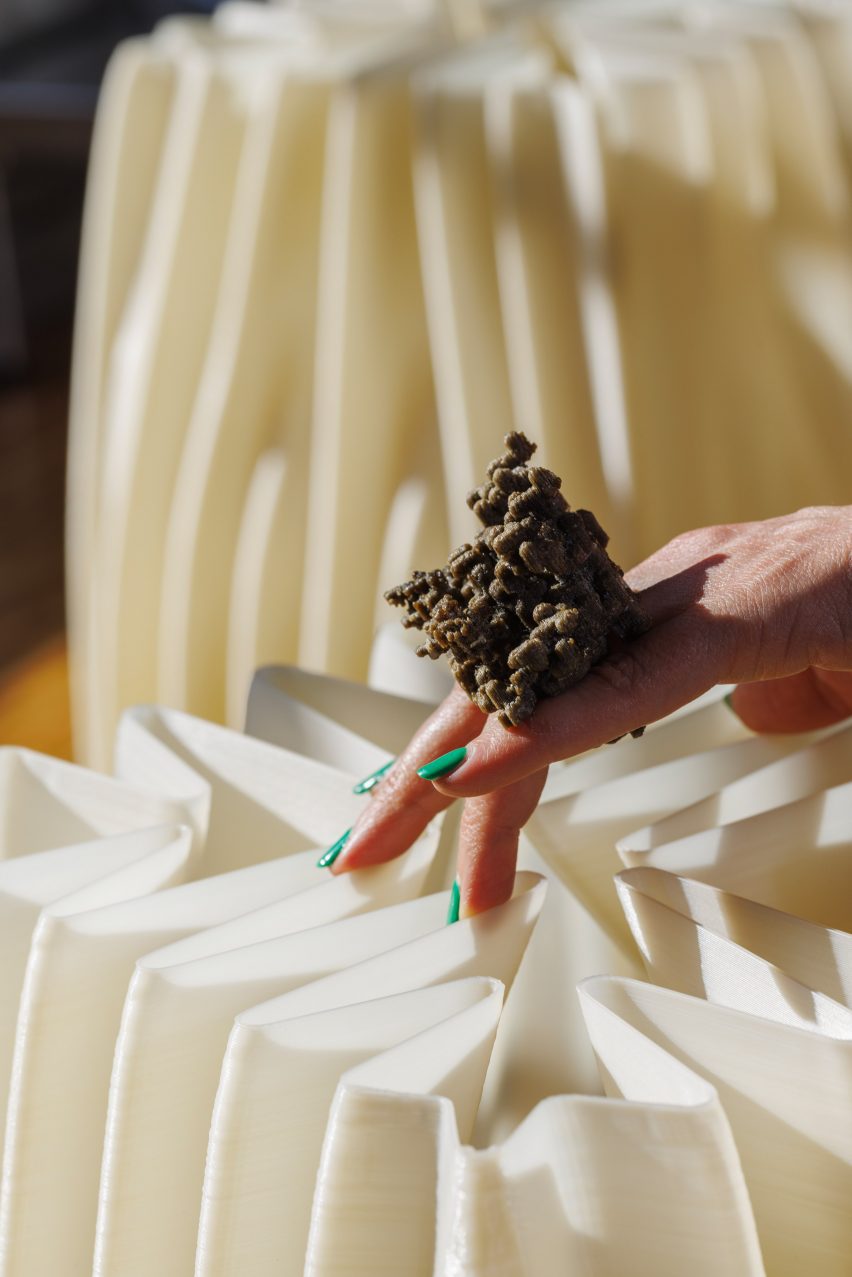
"In the uniqueness of this object we can recognize one of the most significant aspects of contemporary technological evolution: its inevitable convergence with the world of living nature," said EcoLogicStudio founder Claudia Pasquero.
All three objects were created to illustrate the circularity possible when using biobased objects and materials, as well as to introduce a "mass customization" of design technology into everyday objects.
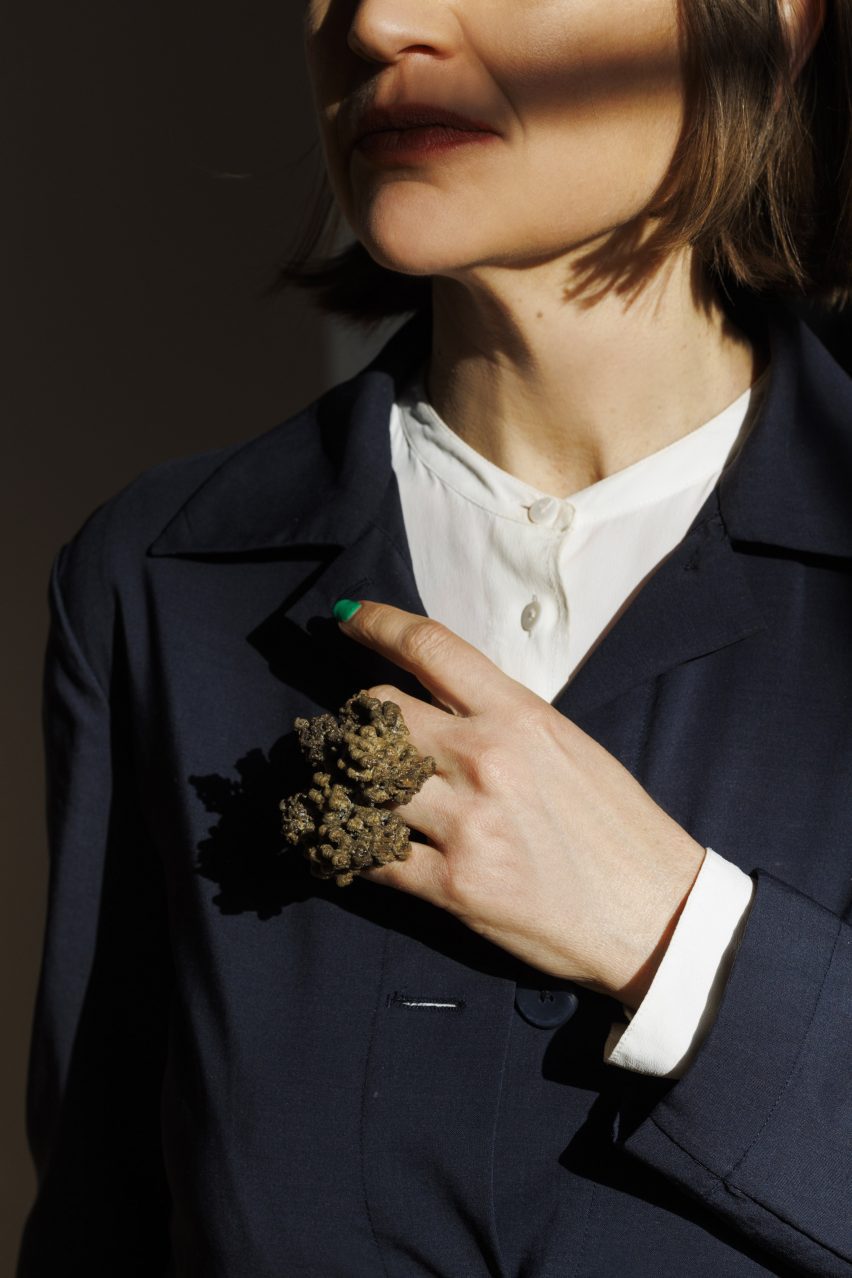
"We want to accelerate the mass customization of the design technology to suit different environments, including residential areas, commercial districts, industrial zones, and public spaces" said the studio.
"Catering to diverse needs and requirements, thus introducing circular economies of biomaterials."
EcoLogicStudio also used algae to purify air inside an enclosed playground and created a DIY algae growing kit during the COVID-19 pandemic.
The PhotoSynthetica collection is set to debut at Milan Design Week, along with a bright orange, sculptural toilet by designer Samuel Ross for Kohler.
The images are by Pepe Fotografia
The PhotoSynthetica collection will be on view from 15 to 21 April as part of Isola Design Festival 2024 during Milan Design Week. See Dezeen Events Guide for more architecture and design events around the world.